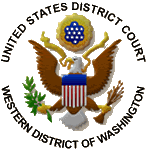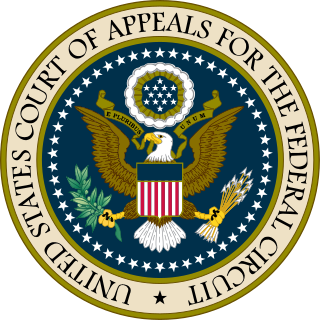Related Research Articles
A copyright is a type of intellectual property that gives its owner the exclusive right to copy, distribute, adapt, display, and perform a creative work, usually for a limited time. The creative work may be in a literary, artistic, educational, or musical form. Copyright is intended to protect the original expression of an idea in the form of a creative work, but not the idea itself. A copyright is subject to limitations based on public interest considerations, such as the fair use doctrine in the United States.
Fair use is a doctrine in United States law that permits limited use of copyrighted material without having to first acquire permission from the copyright holder. Fair use is one of the limitations to copyright intended to balance the interests of copyright holders with the public interest in the wider distribution and use of creative works by allowing as a defense to copyright infringement claims certain limited uses that might otherwise be considered infringement. Unlike "fair dealing" rights that exist in most countries with a British legal history, the fair use right is a general exception that applies to all different kinds of uses with all types of works and turns on a flexible proportionality test that examines the purpose of the use, the amount used, and the impact on the market of the original work.
An end-user license agreement is a legal contract entered into between a software developer or vendor and the user of the software, often where the software has been purchased by the user from an intermediary such as a retailer. A EULA specifies in detail the rights and restrictions which apply to the use of the software.
Limitations on exclusive rights: Computer programs is the title of the current form of section 117 of the U.S. Copyright Act. In United States copyright law, it provides users with certain adaptation rights for computer software that they own.
The first-sale doctrine is an American legal concept that limits the rights of an intellectual property owner to control resale of products embodying its intellectual property. The doctrine enables the distribution chain of copyrighted products, library lending, giving, video rentals and secondary markets for copyrighted works. In trademark law, this same doctrine enables reselling of trademarked products after the trademark holder puts the products on the market. In the case of patented products, the doctrine allows resale of patented products without any control from the patent holder. The first sale doctrine does not apply to patented processes, which are instead governed by the patent exhaustion doctrine.
Ripping is extracting all or parts of digital contents from a container. Originally, it meant to rip music out of Commodore 64 games. Later, the term was used to extract WAV or MP3 format files from digital audio CDs, but got applied as well to extract the contents of any media, most notably DVD and Blu-ray discs.
Software copyright is the application of copyright in law to machine-readable software. While many of the legal principles and policy debates concerning software copyright have close parallels in other domains of copyright law, there are a number of distinctive issues that arise with software. This article primarily focuses on topics particular to software.
Shrink wrap contracts are boilerplate contracts packaged with products; usage of the product is deemed acceptance of the contract.
White-Smith Music Publishing Company v. Apollo Company, 209 U.S. 1 (1908), was a decision by the Supreme Court of the United States which ruled that manufacturers of music rolls for player pianos did not have to pay royalties to the composers. The ruling was based on a holding that the piano rolls were not copies of the plaintiffs' copyrighted sheet music, but were instead parts of the machine that reproduced the music.

A copyfraud is a false copyright claim by an individual or institution with respect to content that is in the public domain. Such claims are wrongful, at least under US and Australian copyright law, because material that is not copyrighted is free for all to use, modify and reproduce. Copyfraud also includes overreaching claims by publishers, museums and others, as where a legitimate copyright owner knowingly, or with constructive knowledge, claims rights beyond what the law allows.

Vault Corporation v Quaid Software Ltd. 847 F.2d 255 is a case heard by the United States Court of Appeals for the Fifth Circuit that tested the extent of software copyright. The court held that making RAM copies as an essential step in utilizing software was permissible under §117 of the Copyright Act even if they are used for a purpose that the copyright holder did not intend. It also applied the "substantial noninfringing uses" test from Sony Corp. of America v. Universal City Studios, Inc. to hold that Quaid's software, which defeated Vault's copy protection mechanism, did not make Quaid liable for contributory infringement. It held that Quaid's software was not a derivative work of Vault's software, despite having approximately 30 characters of source code in common. Finally, it held that the Louisiana Software License Enforcement Act clause permitting a copyright holder to prohibit software decompilation or disassembly was preempted by the Copyright Act, and was therefore unenforceable.
The WIPO Copyright and Performances and Phonograms Treaties Implementation Act, is a part of the Digital Millennium Copyright Act (DMCA), a 1998 U.S. law. It has two major portions, Section 102, which implements the requirements of the WIPO Copyright Treaty, and Section 103, which arguably provides additional protection against the circumvention of copy prevention systems and prohibits the removal of copyright management information.
The copyright law of the United States grants monopoly protection for "original works of authorship". With the stated purpose to promote art and culture, copyright law assigns a set of exclusive rights to authors: to make and sell copies of their works, to create derivative works, and to perform or display their works publicly. These exclusive rights are subject to a time limit, and generally expire 70 years after the author's death or 95 years after publication. In the United States, works published before January 1, 1927, are in the public domain.

The Digital Millennium Copyright Act (DMCA) is a 1998 United States copyright law that implements two 1996 treaties of the World Intellectual Property Organization (WIPO). It criminalizes production and dissemination of technology, devices, or services intended to circumvent measures that control access to copyrighted works. It also criminalizes the act of circumventing an access control, whether or not there is actual infringement of copyright itself. In addition, the DMCA heightens the penalties for copyright infringement on the Internet. Passed on October 12, 1998, by a unanimous vote in the United States Senate and signed into law by President Bill Clinton on October 28, 1998, the DMCA amended Title 17 of the United States Code to extend the reach of copyright, while limiting the liability of the providers of online services for copyright infringement by their users.

Sega Enterprises Ltd. v. Accolade, Inc., 977 F.2d 1510, is a case in which the United States Court of Appeals for the Ninth Circuit applied American intellectual property law to the reverse engineering of computer software. Stemming from the publishing of several Sega Genesis games by video game publisher Accolade, which had disassembled Genesis software in order to publish games without being licensed by Sega, the case involved several overlapping issues, including the scope of copyright, permissible uses for trademarks, and the scope of the fair use doctrine for computer code.

Vernor v. Autodesk, Inc. was a case in the United States District Court for the Western District of Washington regarding the applicability of the first-sale doctrine to software sold under the terms of so-called "shrinkwrap licensing." The court held that when the transfer of software to the purchaser materially resembled a sale it was, in fact, a "sale with restrictions on use" giving rise to a right to resell the copy under the first-sale doctrine. As such, Autodesk could not pursue an action for copyright infringement against Vernor, who sought to resell used versions of its software on eBay. The decision was appealed to the United States Court of Appeals for the Ninth Circuit, which issued a decision on September 10, 2010, reversing the first-sale doctrine ruling and remanding for further proceedings on the misuse of copyright claim. The Ninth Circuit's decision asserted that its ruling was compelled by Ninth Circuit precedent, but observed that the policy considerations involved in the case might affect motion pictures and libraries as well as sales of used software.

Bowers v. Baystate Technologies, 320 F.3d 1317, was a U.S. Court of Appeals Federal Circuit case involving Harold L. Bowers and Baystate Technologies over patent infringement, copyright infringement, and breach of contract. In the case, the court found that Baystate had breached their contract by reverse engineering Bower's program, something expressly prohibited by a shrink wrap license that Baystate entered into upon purchasing a copy of Bower's software. This case is notable for establishing that license agreements can preempt fair use rights as well as expand the rights of copyright holders beyond those codified in US federal law.
Typefaces, fonts, and their glyphs raise intellectual property considerations in copyright, trademark, design patent, and related laws. The copyright status of a typeface—and any font file that describes it digitally—varies between jurisdictions. In the United States, the shapes of typefaces are not eligible for copyright, though the shapes may be protected by design patent. Typefaces can be protected in other countries, including the UK, Germany, and France, by industrial design protections that are similar to copyright or design patent in that they protect the abstract shapes. Additionally, in the US and in some other countries, computer fonts—the digital instantiation of the shapes as vector outlines—may be protected by copyright on the computer code that produces them. The name of a typeface may also be protected as a trademark.
The Louisiana Software License Enforcement Act refers to the Software License Enforcement Act (SLEA) adopted by the state of Louisiana. The bill was voted into law in September 1984 under Title 51 of the Louisiana Revised Statutes by the Louisiana State Legislature. Sponsored and mostly written by Vault Corporation, the SLEA defines the permissible terms and conditions of a software license agreement and the requirements for enforceability. The reverse engineering, decompiling or disassembling provision of the Louisiana SLEA was invalidated by the United States Court of Appeals for the Fifth Circuit ruling in Vault Corp. v. Quaid Software, Ltd., 847 F.2d 255 .
Open source license litigation involves lawsuits surrounding open-source licensed software. Many of the legal rights of open source software licensors enforceable against users violating licensing agreements are untested by the U.S. legal system. Free and open source software (FOSS) is distributed under a variety of free-software licenses, which are unique among other software licenses. Legal action against open source licenses involves questions about their validity and enforceability.
References
- 1 2 3 Warner, Edward (24 June 1985). "Software suit alleges violation of shrink-wrap law". Computerworld . p. 22. Retrieved 16 January 2013.
- ↑ "Copyright and Digital Files". p. 1. Retrieved September 5, 2017.